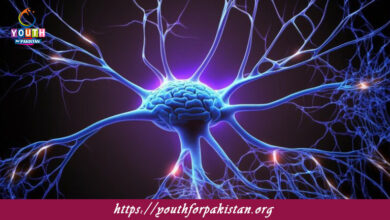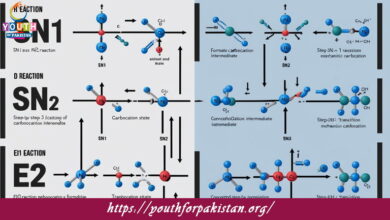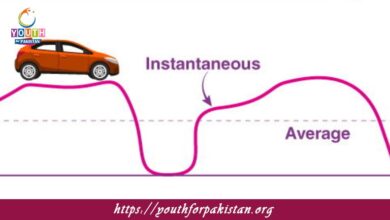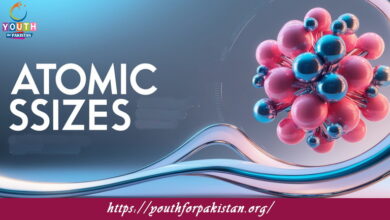Carboxylic Acids Reactivity MDCAT MCQs with Answers
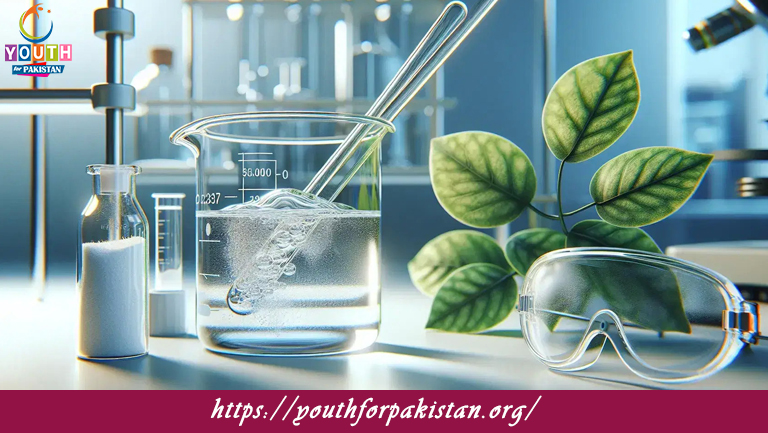
Welcome to the Carboxylic Acids Reactivity MDCAT MCQs with Answers. In this post, we have shared Carboxylic Acids Reactivity Multiple Choice Questions and Answers for PMC MDCAT 2024. Each question in MDCAT Chemistry offers a chance to enhance your knowledge regarding Carboxylic Acids Reactivity MCQs in this MDCAT Online Test.
Carboxylic acids react with alcohols to form:
a) Esters
b) Amines
c) Aldehydes
d) Ketones
The reaction between carboxylic acids and amines produces:
a) Esters
b) Amides
c) Aldehydes
d) Ketones
Carboxylic acids can be reduced to primary alcohols using:
a) Sodium borohydride
b) Lithium aluminum hydride
c) Hydrogen peroxide
d) Potassium permanganate
Which reagent is commonly used to convert carboxylic acids into their corresponding acyl chlorides?
a) Thionyl chloride
b) Sodium hydroxide
c) Hydrochloric acid
d) Sulfuric acid
Carboxylic acids react with bases to form:
a) Esters
b) Amides
c) Carboxylate salts
d) Aldehydes
The reaction of carboxylic acids with alcohols in the presence of a catalyst produces:
a) Aldehydes
b) Esters
c) Ketones
d) Amines
Carboxylic acids can be oxidized to:
a) Aldehydes
b) Ketones
c) Carbon dioxide and water
d) Esters
Which of the following is a common reaction of carboxylic acids with thionyl chloride?
a) Formation of esters
b) Formation of carboxylate salts
c) Formation of acyl chlorides
d) Formation of alcohols
Carboxylic acids can be converted to aldehydes using:
a) Lithium aluminum hydride
b) Sodium borohydride
c) Hydrogen peroxide
d) Grignard reagent
Which reagent is used for the decarboxylation of carboxylic acids?
a) Sodium hydroxide
b) Sodium bicarbonate
c) Soda lime
d) Sulfuric acid
Carboxylic acids react with phosphorous trichloride to form:
a) Acid anhydrides
b) Acyl chlorides
c) Esters
d) Alcohols
The reaction of carboxylic acids with alcohols in the presence of sulfuric acid is known as:
a) Hydrolysis
b) Esterification
c) Reduction
d) Oxidation
Carboxylic acids react with bases like sodium hydroxide to form:
a) Carboxylate salts
b) Esters
c) Alcohols
d) Aldehydes
The reaction of carboxylic acids with metals such as sodium produces:
a) Carboxylate salts
b) Hydrogen gas
c) Esters
d) Alcohols
Carboxylic acids can be converted to ketones using:
a) Sodium borohydride
b) Lithium aluminum hydride
c) Grignard reagent
d) Potassium permanganate
In the reaction of carboxylic acids with acyl chlorides, which of the following is not produced?
a) Ester
b) Carboxylate salt
c) HCl gas
d) Carboxylic acid
Carboxylic acids can be transformed into esters by reaction with:
a) Alcohols
b) Amines
c) Ketones
d) Aldehydes
Which reagent would you use to convert a carboxylic acid into an acid chloride?
a) Phosphorus pentachloride
b) Sodium carbonate
c) Sodium bicarbonate
d) Potassium permanganate
Carboxylic acids are reduced to primary alcohols using:
a) Sodium borohydride
b) Lithium aluminum hydride
c) Zinc
d) Hydrogen
The reaction of carboxylic acids with amines produces:
a) Amides
b) Esters
c) Aldehydes
d) Alcohols
When carboxylic acids are treated with diazomethane, they form:
a) Esters
b) Amides
c) Aldehydes
d) Ketones
The formation of carboxylate salts occurs when carboxylic acids react with:
a) Alcohols
b) Bases
c) Acids
d) Aldehydes
Carboxylic acids react with phosphorous pentachloride to form:
a) Esters
b) Acyl chlorides
c) Amides
d) Aldehydes
The reaction of carboxylic acids with alcohols can be catalyzed by:
a) Hydrochloric acid
b) Sulfuric acid
c) Sodium hydroxide
d) Phosphoric acid
The conversion of carboxylic acids to esters is generally known as:
a) Esterification
b) Saponification
c) Hydrolysis
d) Fermentation
Carboxylic acids can react with soda lime to:
a) Form ketones
b) Produce carbon dioxide
c) Form alcohols
d) Produce esters
Which reagent is used for the conversion of carboxylic acids into aldehydes?
a) Lithium aluminum hydride
b) Sodium borohydride
c) Grignard reagent
d) Phosphorous trichloride
The reaction of carboxylic acids with bases like sodium carbonate produces:
a) Carboxylate salts
b) Esters
c) Aldehydes
d) Alcohols
Carboxylic acids react with alcohols in the presence of a dehydrating agent to form:
a) Aldehydes
b) Carboxylate salts
c) Esters
d) Ketones
What is formed when carboxylic acids react with sodium metal?
a) Carboxylate salts
b) Hydrogen gas
c) Esters
d) Aldehydes
Carboxylic acids can be decarboxylated using:
a) Sodium hydroxide
b) Soda lime
c) Hydrochloric acid
d) Sodium chloride
Carboxylic acids can be converted to their corresponding acid anhydrides using:
a) Phosphoric acid
b) Acyl chloride
c) Alcohol
d) Grignard reagent
In the presence of which reagent can carboxylic acids be converted to esters?
a) Sodium hydroxide
b) Sodium bicarbonate
c) Thionyl chloride
d) Diazonium salts
Carboxylic acids react with which reagent to form carboxylate salts and alcohols?
a) Phosphorus trichloride
b) Sodium bicarbonate
c) Acyl chloride
d) Sulfuric acid
What is the common name for the reaction of carboxylic acids with thionyl chloride?
a) Esterification
b) Saponification
c) Acylation
d) Formation of acid chlorides
The reaction of carboxylic acids with which reagent is commonly used to produce esters in the laboratory?
a) Hydrochloric acid
b) Sodium hydroxide
c) Methanol
d) Sodium chloride
Which method is used to prepare carboxylic acids from aldehydes or ketones?
a) Oxidation
b) Reduction
c) Esterification
d) Hydrolysis
The reaction of carboxylic acids with ammonia produces:
a) Amides
b) Esters
c) Carboxylate salts
d) Aldehydes
Carboxylic acids can be converted into alcohols using:
a) Sodium borohydride
b) Lithium aluminum hydride
c) Potassium permanganate
d) Hydrogen chloride
In the reaction of carboxylic acids with sodium hydroxide, what is the product?
a) Carboxylate salts
b) Aldehydes
c) Ketones
d) Esters
If you are interested to enhance your knowledge regarding Physics, Chemistry, Computer, and Biology please click on the link of each category, you will be redirected to dedicated website for each category.

